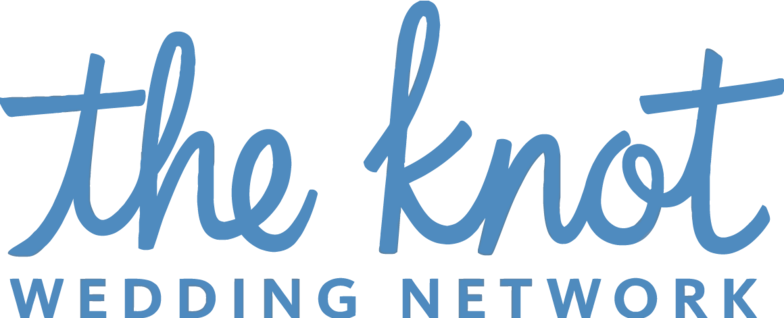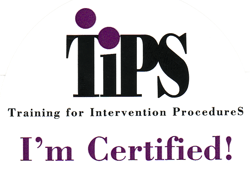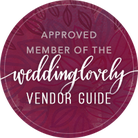|
The PESO model is a framework used in public relations and marketing to categorize different types of media and communication channels. The acronym stands for: ● Paid media: This includes any type of advertising that a company pays for, such as display ads, paid search ads, social media ads, and sponsored content. Paid media is typically used to promote products, services, or events, and is often designed to reach a wider audience than other forms of media. ● Earned media: This refers to the publicity that a company or brand has earned through editorial coverage, news stories, reviews, social media mentions, and other types of non-paid media. Earned media is typically seen as more credible than paid media since it is not controlled by the company or brand. ● Shared media: This includes social media platforms, blogs, and other online communities where people share content with each other. Shared media can be a powerful tool for companies to engage with their audience, build relationships, and encourage user-generated content. ● Owned media: This refers to any content that a company or brand creates and controls, such as its website, blog, email newsletters, and other marketing materials. Owned media is important for establishing a brand's identity and providing information to customers, and can also be used to drive traffic to other types of media. By understanding the different types of media and how they can be used together, companies can create more effective marketing and public relations campaigns. The PESO model can help them decide which types of media to focus on, and how to integrate them into a comprehensive strategy. How the PESO Model Can Support Your Small Business The PESO model is important for small businesses because it provides a framework for creating an effective and comprehensive marketing and public relations strategy. Here are some reasons why the PESO model is particularly useful for small businesses:
Overall, the PESO model is a valuable tool for small businesses looking to create a comprehensive and effective marketing and public relations strategy. By understanding the different types of media available and how they can be used together, small businesses can maximize their resources, increase their visibility and credibility, and achieve their marketing and PR goals. My Big Day Marketing & Events has the marketing experience and knowledge to help your business use the PESO model to fit your needs. We can help you develop a comprehensive strategy that will deliver results. Download our FREE printable of the PESO model below!
For more business success tips and ideas, follow MBD Marketing & Events on Facebook, Instagram, and Pinterest. llective of experts, My Big Day specializes in creativity. With superior organization, marketing experience and original ideas, we pull off amazing events and campaigns!
My Big Day makes business personal by bringing JOY to the job in everything we do. As purveyors of fun with My Big Day, we support businesses and individuals in the growth of their ideas, events and marketing strategies. Our creative aptitude allows for unique ideas. Our passion for perfection makes every client a priority! Contact MBD Marketing & Events *** Bringing Joy to the Job *** Phone: 970-613-1455 or 303-886-3068 Email Us As a business owner, you probably (hopefully) want to see your employees happy. But did you know employee happiness matters for your business’s bottom line, too? Joy is part of all aspects of our work at MBD Marketing & Events. Here are seven reasons employee satisfaction is crucial for business success. Happy employees are more productive Happy employees are 12% more productive than their dissatisfied counterparts (Snacknation). Happiness is an invigorating, motivating emotion. In fact, employee satisfaction has a greater impact on performance than financial incentives. In fact, nine out of 10 employees would trade a percentage of their salary for “meaningful work” and positive company culture (Harvard Business Review). Research shows that people who are happy at work are more collaborative, more creative, and better at problem-solving. (Sound like a team you know?) Coworkers who are happy in the workplace and who get along well are more likely to work effectively to achieve common goals. Greater happiness = greater sales Like with productivity, greater happiness translates to greater sales - by 37% (Gallup). Not only have we determined that engaged employees are more productive, but that positive attitude resonates with customers. Potential customers or clients are much more likely to commit when interacting with upbeat salespeople. Companies with happy employees outperform their competition Not surprisingly, companies with happy employees, better productivity, and greater sales outperform their competition in all areas. Fortune’s “100 Best Companies to Work For” enjoyed a raise in stock prices of 14% per year from 1998-2005, compared to 6% for the overall market (Forbes). Positive workplace culture creates a beneficial snowball effect by creating happier employees who in turn contribute to a better workplace climate. The Harvard Business Review notes, “Decades of data have confirmed that higher employee engagement, or the strength of the mental and emotional connection an employee feels toward their workplace, has many positive benefits — including reduced stress, improved health and job satisfaction, as well as increased productivity, job retention, and profitability.” Engaged workers are less likely to look for new employment Happy employees want to stay with their companies. Losing an employee costs a company 1.5 to two times that employee’s salary (BuiltIn) and leads to decreased productivity and decreased employee morale. In addition, happy employees attract top talent. The most in-demand employees in any field have their pick of companies to work for, and company culture is the top priority for most workers. High-quality employees attract other high-quality workers. Happy workers have fewer accidents Satisfied employees produce better quality products and services and have 50% fewer workplace accidents (Lorman). Happiness leads to higher engagement, which leads to greater focus and motivation, and in turn, fewer mistakes at work. Employees who are worried, stressed, or distracted at work are at the highest risk for quality and safety mishaps. Happy employees take fewer sick days Sick days are a business expense, and employees who report being happy at work take 10 times fewer than average (iSmartRecruit). The Integrated Benefits Institute found in 2019 that sick days cost employers an average of $3,900 per employee in lost productivity. When unhappiness in the workplace increases, so do sick days. What happens when employees are unhappy at work? A 2013 State of the American Workplace Report estimated that actively disengaged workers cost the U.S. $450-550 billion per year (CBS News). Here are some other alarming statistics about employees who are unhappy at work:
For more business success tips and ideas, follow MBD Marketing & Events on Facebook, Instagram, and Pinterest. Making Business Personal
As a connected collective of experts, My Big Day specializes in creativity. With superior organization, marketing experience and original ideas, we pull off amazing events and campaigns! My Big Day makes business personal by bringing JOY to the job in everything we do. As purveyors of fun with My Big Day, we support businesses and individuals in the growth of their ideas, events and marketing strategies. Our creative aptitude allows for unique ideas. Our passion for perfection makes every client a priority! Contact MBD Marketing & Events *** Bringing Joy to the Job *** Phone: 970-613-1455 or 303-886-3068 Email Us There may come a time in the life of your business when you need to rebrand. Maybe you’re entering a new market, repositioning your brand to appeal to a new customer, or your vision for your business has changed – follow these tips for your company rebrand. Keep in mind that rebranding carries risks. Proceed carefully to avoid alienating your current customers, incorporating short-term trends at the expense of long-term business, and losing brand recognition. Feeling overwhelmed already? Consult the MBD Marketing & Events team for your small business marketing needs. Do it for the right reasons We’ve already listed some of the right reasons to rebrand. Ultimately, if your brand values, business offerings, or target market have changed, a rebrand is appropriate. We don’t recommend rebranding to appeal to short-term trends in your industry, to “shake things up,” or to cover up a brand crisis. Reevaluate your brand’s identity If your brand’s identity has changed – if you are offering significantly different products or services than you did in the past and/or looking for a new type of customer – don’t jump into a rebrand. Redefining your brand’s identity takes consideration, time, and careful planning behind the scenes. This means revisiting your brand’s vision, mission, and values. Think about what your company does and why. Brand mission encompasses how your company plans to achieve its goals. How is your company providing the best version of the product or service you’re offering? What makes your brand unique compared with competitors? You should be able to answer all of these questions, and have a plan for updating your digital and print business materials accordingly, before making your rebrand public. Read more about brand vision, mission, and values on our blog: Let’s Talk About VALUES. Rename – carefully A new identity can mean your brand has outgrown its name. A name change is a big undertaking which affects brand recognition and website search traffic. You can have a successful rebrand without a name change, but if your company name no longer reflects your business offerings, renaming is a smart move. A new name should reflect your company’s identity and support your mission, not just sound good. Your goal should be to select a name that best reflects your identity now and in the future, so you won’t need to rename again. A new slogan and new visuals should accompany your new brand name. Create a new look There are lots of elements to consider in creating a new look for your brand. Fonts, colors, logos, website and advertisement imagery, email templates, business cards, all need to have a comprehensive look that reflects your brand identity. Frequent color and logo changes will give your customers whiplash, so choose designs that will stand the test of time with minimal adjustments. Besides your company’s name, these visuals are the most important element of brand recognition. Establish brand guidelines (instructions for use of your logo, fonts, and colors) to maintain consistency. Get feedback It is important to check in with your existing customers during a rebrand. Welcome feedback, and be ready for questions and concerns – even better, try to anticipate questions and concerns so you can address them in your rebranding communications. Interactive platforms like social media give you the opportunity to track customers’ feelings about brand changes. Existing customers must understand the reasons for your rebrand. Reassurance and clarity are necessary for customers to buy into your new brand. Publicize your rebrand While you want to prepare your existing customers for a rebrand, you should be proud of – and celebrate – your business’s growth. Talk about your rebrand, transparently, as publicly as possible. Social media and press releases are excellent avenues for communicating your rebrand to current and prospective clients. To create more excitement (and potential new business), consider creating advertisements and/or hosting an open house or launch party to introduce your new brand. For more business marketing and event tips and ideas, follow My Big Day on Facebook, Instagram, and Pinterest. Making Business Personal
As a connected collective of experts, My Big Day specializes in creativity. With superior organization, marketing experience and original ideas, we pull off amazing events and campaigns! My Big Day makes business personal by bringing JOY to the job in everything we do. As purveyors of fun with My Big Day, we support businesses and individuals in the growth of their ideas, events and marketing strategies. Our creative aptitude allows for unique ideas. Our passion for perfection makes every client a priority! Contact MBD Marketing & Events *** Bringing Joy to the Job *** Phone: 970-613-1455 or 303-886-3068 Email Us Running a small business is hard work! Small business owners tend to wear many hats: project manager, logistics manager, operations manager, human resources department, and often times, marketing manager. That is a lot to maintain and control! Marketing mistakes and pitfalls often occur due to the fact that so many small business owners aren’t confident in their marketing skills and they are simply just spread too thin. Marketing mistakes won’t necessarily ruin your business, but they do sometimes cost time and money. The My Big Day Marketing & Events team recently pulled together a list of common marketing mistakes that we have noticed clients and potential clients make. Our team has over 127 years of marketing experience - we’ve seen it all! Hopefully this list will help your small business avoid or correct potentially costly mistakes. Outdated Website Your website is your most valuable marketing asset. It is the key to reaching all of those searching potential customers. It is oftentimes the channel that delivers your company’s first impression to potential customers. 97% of consumers search online for products and services. A missing or outdated website can have a detrimental effect on your ability to do good business. Creating and maintaining a website isn’t hard or even expensive. There are a variety of easy-to-use website builders that are affordable - Wix, Weebly, Squarespace - are all user-friendly for even the most tech-fearing person. Neglecting Data If you don’t track the results of marketing campaigns, website traffic, or social media data, you never get a solid idea of what actually works. Not tracking goals, conversions, click-through rates, or engagement is like throwing something “against the wall” and hoping that something sticks - a sometimes costly mistake. There is no way to learn from your mistakes when you neglect to track. There is no way to improve. My Big Day Marketing & Events suggests building a strategy that includes campaigns with goals, milestones, defined messaging, targeted channels, and data collection. We suggest tracking website metrics, including the number of sessions, users, pageviews, top pages, traffic sources (which social media channels or ads bring your website the most visitors), visitor demographics, and conversions. When you collect this data, you’ll be able to track where to spend your time and money for campaign promotions. You’ll also learn a lot about your audience and customer base. My Big Day Marketing & Events tracks these metrics quarterly for all of our clients. This data helps us shape and adjust our marketing messaging. You don’t have a clear idea of who your audience is Your audience is the people you want to purchase your service or product - those that are buying your solution to their problem. Sometimes the audience we want can blind us to the customers we actually have. No matter how great your messaging, logo, or campaigns are - if you don’t really know your audience, your message will miss the mark. Some small business owners try to avoid this problem by targeting the masses (remember before we mentioned throwing something against the wall in hopes that it will stick???). This is a sure way to drive up marketing costs and see very little on your ROI. My Big Day Marketing & Events helps small businesses study and get to know their customers and target audiences. We help companies segment their customer base, allowing tailored messaging to reach the right people at the right time. Wasting time on social media by not following the 80/20 rule The 80/20 rule is a standard in social media marketing - 80% of social media posts should provide useful information to your audience (educating, entertaining, and offering solutions), 20% explicitly promote your business. People do not engage on social media to watch advertisements. They scroll through their timelines and feeds to connect with others, to be entertained, to learn, and to be inspired. Your social media strategy should reflect that. Also, when you provide helpful content for your audience, you are establishing yourself and your company as an authority on the matter. It builds trust. My Big Day Marketing & Events will often create posts and blogs that provide links to helpful articles or videos, industry insights, inspirational quotes and images, timely articles, and uplifting stories. These are peppered in with posts that promote our clients’ businesses and events. All of this is created to draw your customers in and engage them around your mission and business. No strategy or plan All of the previously mentioned mistakes could be avoided with one simple solution - having a strategy and plan. Failing to plan usually leads to a high rate of failure. Every client, event, and campaign is unique. My Big Day Marketing & Events works with each client to build a marketing strategy that works for their specific needs and goals. Our typical marketing strategy is built around these 7 steps:
Failing to see marketing as a business investment Expenses are something you buy and are often cut or curbed during tight economic times. Investments deliver future value. The entire purpose of marketing is to drive leads into future and long-time customers. When you treat marketing as an expense, your ability to find future leads, customers, and company ambassadors is greatly diminished. Marketing should be viewed as a business investment. Marketing will help drive growth and new opportunities when your company needs it the most. My Big Day Marketing & Events helps coach clients to avoid these common mistakes. We work to help small businesses create effective, scalable, and brand-building marketing campaigns that really work. We specialize in marketing, advertising, social media strategy & management, website design & maintenance, and event marketing. We have the time and expertise to help support small business goals and growth. If you would like help with your marketing goals and strategy, reach out for a one-on-one consultation. We will help you avoid these mistakes and find success! Making Business Personal
As a connected collective of experts, My Big Day specializes in creativity. With superior organization, marketing experience and original ideas, we pull off amazing events and campaigns! My Big Day makes business personal by bringing JOY to the job in everything we do. As purveyors of fun with My Big Day, we support businesses and individuals in the growth of their ideas, events and marketing strategies. Our creative aptitude allows for unique ideas. Our passion for perfection makes every client a priority! Contact MBD Marketing & Events *** Bringing Joy to the Job *** Phone: 970-613-1455 or 303-886-3068 Email Us It’s pretty simple - smart Small Businesses rely on Referral Programs to bring in leads. Referral Programs are effective tools in converting leads and expanding your loyal customer base. What is a Referral Program for Small Business? A referral program is a word-of-mouth marketing strategy that turns your most satisfied customers into brand ambassadors. To simplify - your customers do a lot of your marketing for you! Referral programs let satisfied customers share their brand experience with partners, colleagues, and friends - providing a much larger communication web than your business could do on its own, at a fraction of the cost! The purpose of a referral program is to acquire leads and build credibility. When you ask your customers to consider others who might benefit from your product or service, they will forward leads that are already a good fit for your brand. It means you will spend less time and money on acquiring new customers - these referred clients will come in already with exposure to your business. For many, a Small Business Referral Program produces images of punch-card programs or discount coupons. These are low-budget tools that can produce results, for sure, but even small businesses can expand their reach by collecting and using data and creative communication. How to Start Your Own Referral Program There are a variety of referral program software systems that you can research and utilize in setting up your own referral program. You can also utilize a variety of templates connected to your current CRM that allow you to create a bank of referral request emails, referral follow-up emails, social content about your business, and tools for creating a positive customer experience. That all sounds like a lot of work, but it is actually quite easy. After setting your referral program goals, start by:
Referral Program Examples You can reap great benefits from a strong and well thought out referral program. Offering your customers an official way to spread the word about your business and rewarding them for their efforts is the name of the game! There are many creative ways in which you can launch a successful program:
There are many ways to engage with your current customers to build a quality program that will benefit your bottom line. You can increase your visibility, expand your audience base, and grow closer to your current customers, for a fraction of the cost of paid advertising. Something to consider when creating your business and marketing plans! Small Business. Big Impact.
As a connected collective of experts, My Big Day specializes in the creative touches so many marketing campaigns & events these days are lacking. With superior organization, marketing experience and original ideas, we pull off amazing events and campaigns! Allow us to WOW you and your guests! As purveyors of fun with My Big Day, we support businesses and individuals in the growth of their ideas, events and marketing strategies. Our creative aptitude allows for unique ideas. Our passion for perfection makes every client a priority! Contact MBD Marketing & Events Small Business. Big Impact. Phone: 970-613-1455 or 303-886-3068 Email Us We serve the entire Front Range; Denver, Southern Wyoming, the CO Mountains, and Northern Colorado: Loveland, Fort Collins, Greeley, Windsor, Berthoud, Estes Park, Lyons, Longmont, Boulder, Wellington, Johnstown, Evans, Severance, Timnath, Mead, Frederick, Firestone, Milliken Whether you’re just starting your small business or are well-established, a communications plan is crucial for your business success. Here are four reasons why you need a small business communications plan – and how My Big Day can help. What is a communications plan? A communications plan or strategy is a system through which businesses communicate news and marketing messaging within the company and externally. Internal communication may occur between colleagues, human resources staff, and company management. Information may be communicated externally to the public, news media, clients, suppliers, and other businesses. The goal of a communications plan is to ensure your business’s messaging remains consistent, no matter who is receiving information and from which representative of your company. Communications plans are designed to be proactive, but are absolutely necessary in a crisis. A communications plan may address not only what message should be broadcast, but through which channels (for example, that certain types of messaging should be communicated through email, over the phone, or via internal memos). Why do I need a communications plan for my small business? Company Image A standardized, professional method of communication with the public lends your business credibility. Consistent communication builds external trust in your business, and trust is paramount to success. It is important to know which message(s) you want to convey to specific target audiences, which is where marketing comes into play. Conflicting information released by different parties sporadically conveys an image of disorganization, which degrades trust. Having a unified communications strategy that everyone in the company is aware of prevents confused messaging. Crisis Management Some sort of reputation crisis, whether big or small, is inevitable during the life of your small business. It may be one disgruntled client or a newsworthy catastrophe that affects a wide audience’s perception. Either way, having a strategic communication plan in place will reduce uncertainty for you and present your company as a unified front under scrutiny. Community Relations Engaging with and supporting your community is essential to your business’s image. Your company’s public reputation is enhanced by giving back, including support of nonprofits, local initiatives, and other businesses. Staying abreast of industry happenings helps you make better business decisions, and positive relationships with other businesses build trust and mutual respect. Internal Business Objectives and Employee Morale Having everyone in your company on the same page is essential to efficient operations. Everyone in your company should understand their roles and tasks and have the information necessary to carry them out. Missing or inconsistent information frustrates employees and decreases performance. Trust, loyalty, and transparency are cultivated through a consistent internal communications plan between employees and management. How do I create a small business communications plan? Creating an effective small business communications plan requires knowledge of branding, measurable goals, target markets, media relations, communication channels, campaigns and events, and evaluation of measurable communication analytics. Executing a strategic communications plan is a big job, and most small businesses don’t have a marketing or PR professional in-house. Internal communications plans, particularly for small companies, can be managed by an owner, president, or manager. External communications are best managed by professionals trained in marketing or public relations. At My Big Day, we offer a long list of small business services, including strategic communications planning, in conjunction with:
Our talented team of women comes from a variety of educational backgrounds with decades of experience in the marketing, communications, and event planning industries.
Reach out to find out how we can help you grow your small business! For business marketing and event tips and ideas, follow My Big Day on Facebook and Instagram. Visit our Small Business Marketing Pinterest board for more from your local small business experts! |
Search our blog
About MBD
Making Business Personal. We pride ourselves on giving you something to look forward to. We are a connected collective of creatives - owned an operated by outstanding women. Want More?Never miss an event or opportunity. Sign up for our newsletter!
Disclosure: *All content produced by My Big Day; DBA Big Deal Company, including websites, are the property of My Big Day LLC and protected by U.S. and international copyright laws. You may not copy, reproduce, distribute, transmit, modify, create derivative works, or in any other way exploit any part of our materials without the prior written permission from My Big Day LLC. Search Categories
All
Monthly Archives
April 2023
|
||||||||
Never miss an event or opportunity. Sign up for our monthly newsletter.
My Big Day Company LLC 2006-2023 www.MyBigDayCompany.com
970-613-1455 or 303-886-3068 EMAIL US
We serve the entire Front Range; Denver, Southern Wyoming, the CO Mountains, and Northern Colorado: Loveland, Fort Collins, Greeley, Windsor, Berthoud, Estes Park, Lyons, Longmont, Boulder, Wellington, Johnstown, Evans, Severance, Timnath, Mead, Frederick, Firestone, Milliken
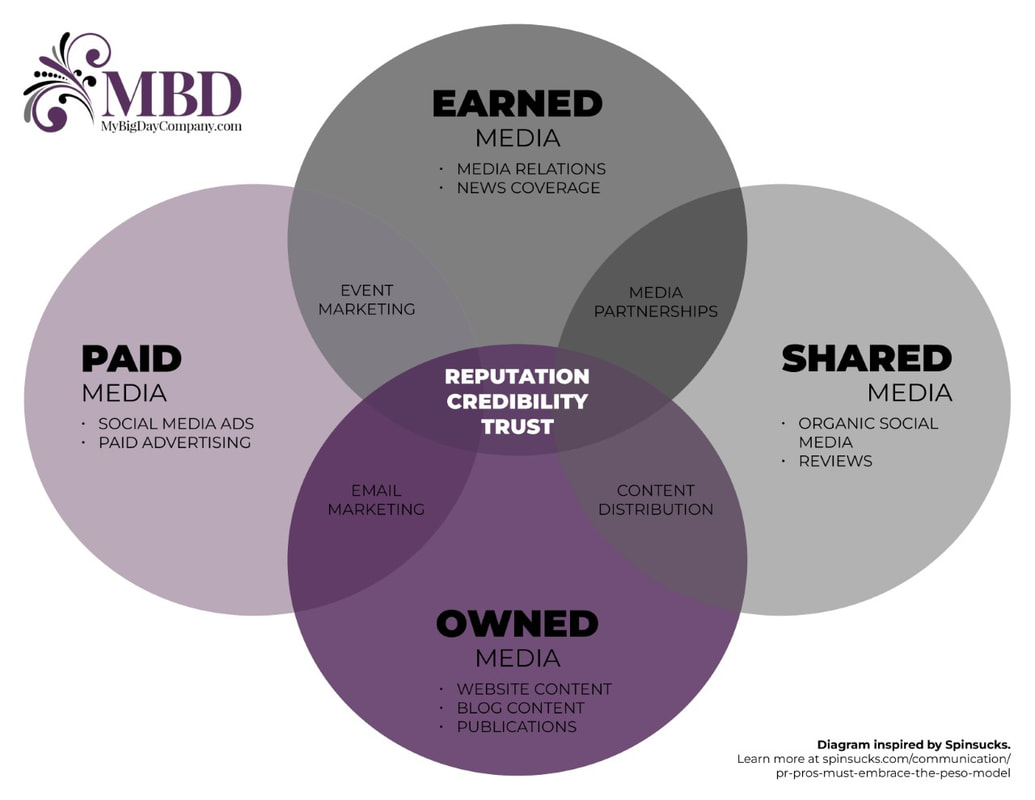












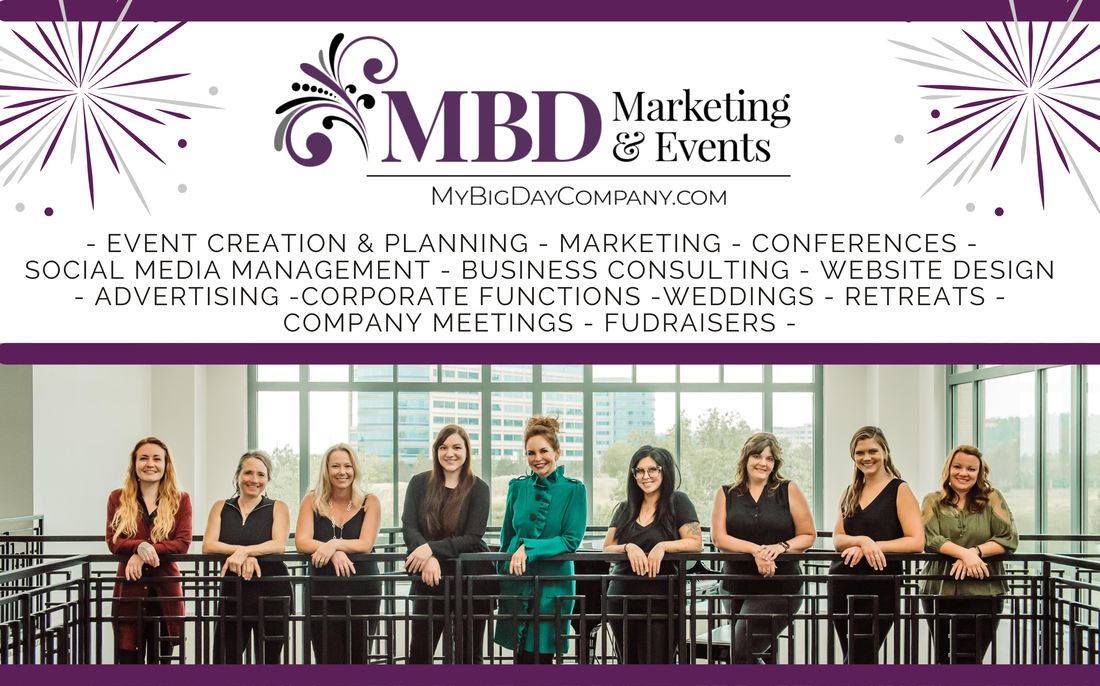







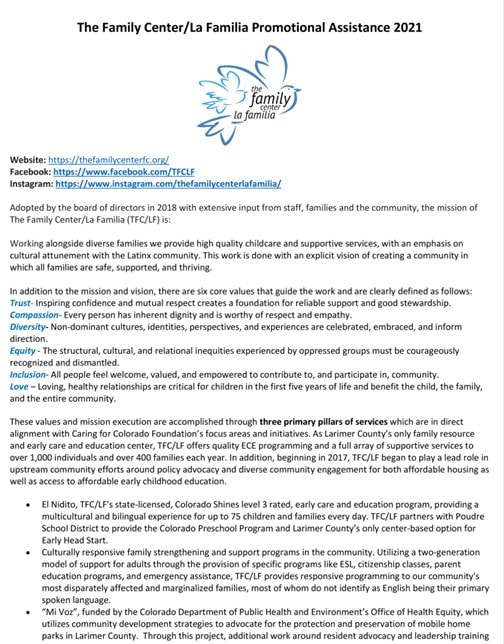
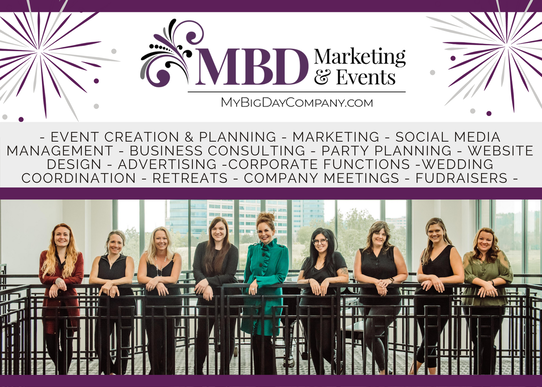

 RSS Feed
RSS Feed













